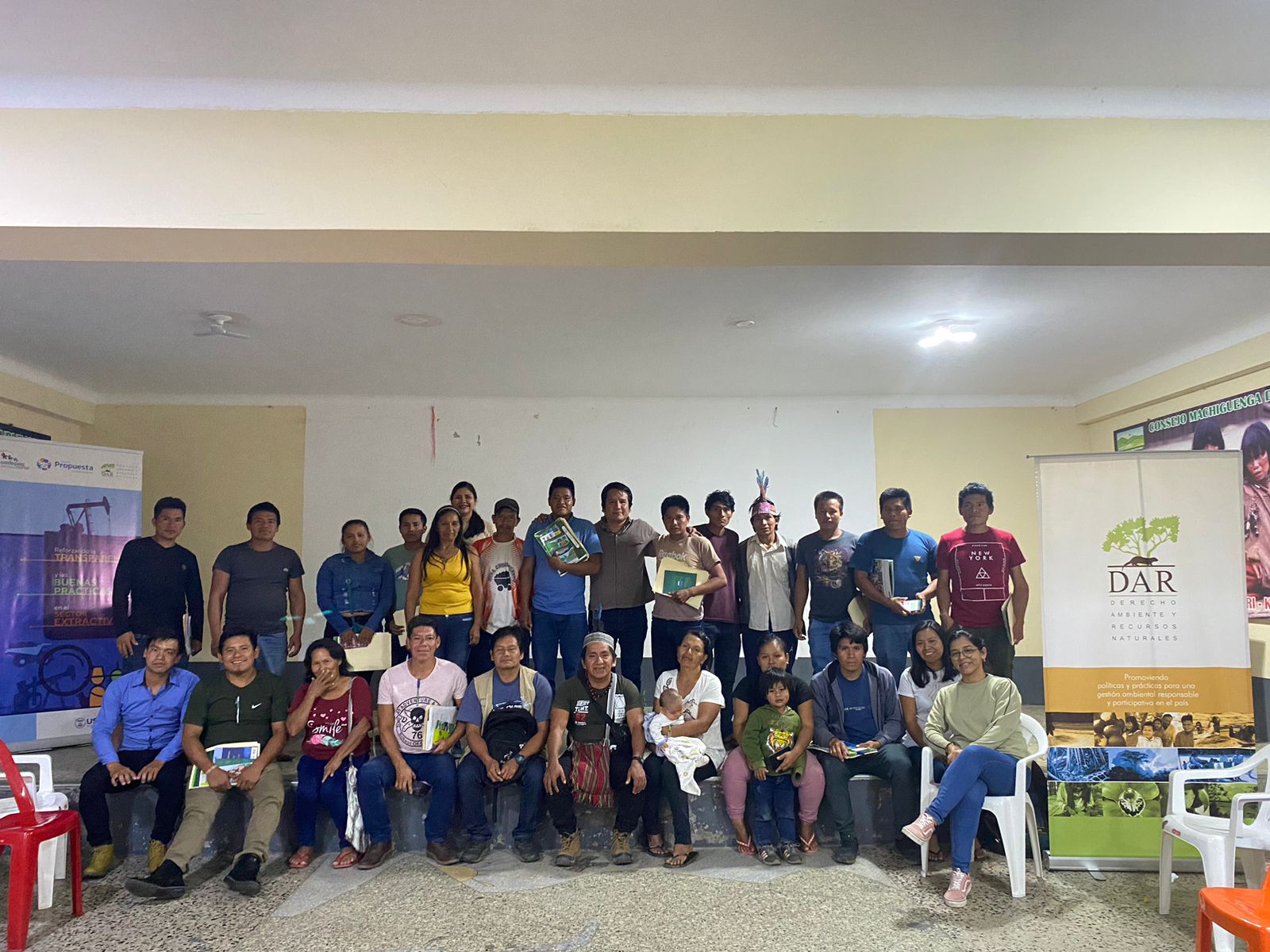Quillabamba, June 16, 2023.
The Machiguenga Council of the Urubamba River (COMARU) in alliance with Law, Environment and Natural Resources (DAR) held a workshop entitled «Transparency, protection of defenders in extractive industries and EITI initiative: monitoring for action from indigenous peoples», which sought to strengthen the capacities of leaders of the indigenous communities of the Upper and Lower Urubamba of the district of Megantoni, Cusco.
The workshop took place within the framework of USAID’s «Strengthening transparency and best practices in extractive sector activity» project, which aims to improve the governance of the extractive sector in Peru and increase its contribution to socially and environmentally sustainable investments. On this occasion, culturally adapted learning sessions on transparency and the Extractive Industries Transparency Initiative (EITI) were implemented. These learning sessions allowed more than 30 indigenous leaders to learn about the importance and usefulness of monitoring and transparency in the follow-up of public investment projects, which result from the canon and royalties from extractive industries.
«Now I have learned that it is important to be vigilant and demand transparency and information on projects such as Camisea gas, so that communities can improve their capacity for participation and negotiation, so that investments benefit our communities and do not impact our rights,» said Marlene Piñarreal, leader of the Shivankoreni community, who participated in the workshop.
The event also addressed topics such as: the Escazú Agreement, prior consultation, energy transition, protection of defenders, as well as negotiation and compensation. The workshop was attended by indigenous leaders from the communities of Yoquiri, Shivankoreni, Tangoshiari, Cashiriari, Sangobatea, Poyentimari, Shimaa, Chirumbia, Chakopishiato, Porotobango, Carpintero-Kirigueti, Timpia; these being an important space for the communities of Amazonian Cusco.
In addition, this workshop allowed for a dialogue based on the identification of the current challenges facing the Urubamba river basin. These include increased deforestation, the cumulative environmental and social impacts of hydrocarbon activities in their territories, threats to their rights defenders, and the arrival of the energy transition, which will have the Amazon as a key region for its development.
Finally, it was recalled that 2024 will be the 20th anniversary of the start of gas operations at Camisea. In view of this, the workshop helped to generate elements for an advocacy strategy to highlight the importance of protecting indigenous territories and forests.
This workshop was carried out with support from USAID’s «Strengthening transparency and best practices in the extractive sector», Publish What You Pay (PWYP) and the Platform for Sustainable Revitalization (PLARS) projects.


